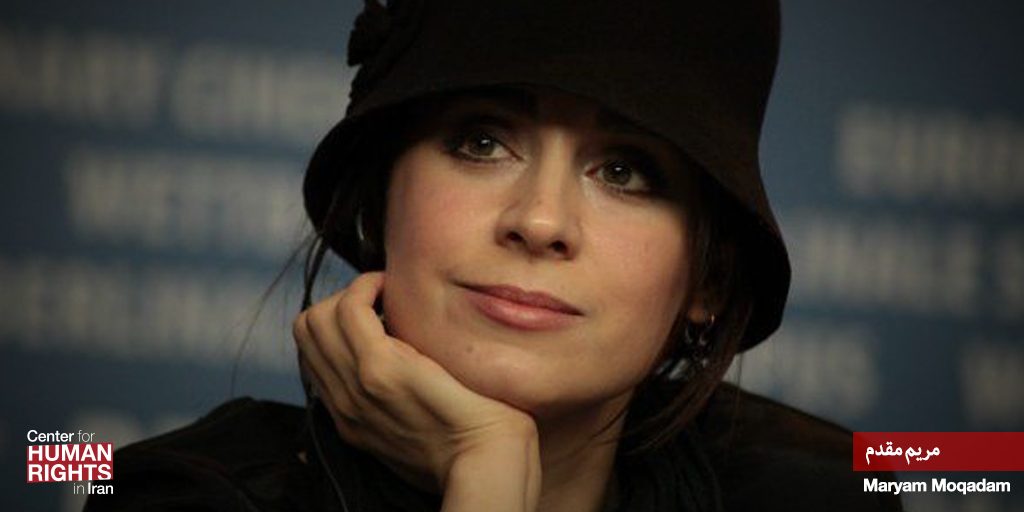CHRI – Iranian actress Maryam Moghaddam (also referred to as Moqadam), has written an open letter to Iran’s Minister of Culture and Islamic Guidance Abbas Salehi asking why she was suddenly barred from working on a movie.

“Mr. Minister! This is the state of the film industry you are in charge of: I was pulled from a film project on the first night of shooting based on ‘an order from above’ and warned that if I complained, I would face bigger problems; I would be reprimanded and arrested,” she wrote in the letter published by the Persian-language “Cinema Cinema” magazine on April 14, 2019.
Moghaddam, 49, who also holds Swedish citizenship, said she was given no explanation for her forced departure.
“Except for the two years that I was officially banned because of acting in Jafari Panahi’s film, I have never been prevented from working,” she wrote. “If the situation has changed, please let me know.”
After playing the lead female role in the film “Closed Curtain,” directed by Panahi and Kambuzia Partovi in 2013 (for which Panahi won an international award for best script), Iranian authorities confiscated Moghaddam’s Swedish passport.
In 2010, Panahi was sentenced to six years in prison and banned from making films for 20 years.
Panahi’s prison term has not been enforced but he has been prohibited from leaving the country.
Despite the ban, Panahi has continued to make films and submit them to international festivals.
In 2012, the European Union co-awarded the prestigious Sakharov Prize for Freedom of Thought to Panahi and human rights attorney Nasrin Sotoudeh, who is currently serving a 12-year prison sentence.
In 2015, Panahi’s film “Taxi” won the top prize at the Berlin Film Festival.
“Today I am writing this letter because I can no longer tolerate the pain I have felt on several occasions during my film career in Iran,” Moghaddam wrote in her letter to Minister Salehi. “I will not remain silent as I have in the past.”
“I do not know if writing you a letter will solve anything or make the situation harder for me but it does not matter,” she added. “It is certainly better than keeping quiet.”
She continued: “You know very well that other than myself, there are many film artists and professionals who are exiles in their own country. It is no longer a secret to anyone that all the job opportunities and financial resources have been monopolized by a few individuals.”
“For how long do you expect everyone to be scared of saying something?” she asked. “Are you not hearing the voices of the innocent people surrounding you?”
Members of Iran’s film and theatre industry, like all other artists in the country, are expected to abide by stringent rules, some of which are arbitrarily enforced, such as forcing women to wear hijabs at all times and not allowing men and women to engage in close contact on camera.
In January 2019, prominent Iranian theater director and playwright Mohammad Rahmanian was charged with“propaganda against the state” based on a complaint by the Islamic Revolutionary Guard Corps for allegedly featuring a female soloist in his play.
 Shabtabnews In this dark night, I have lost my way – Arise from a corner, oh you the star of guidance.
Shabtabnews In this dark night, I have lost my way – Arise from a corner, oh you the star of guidance.



